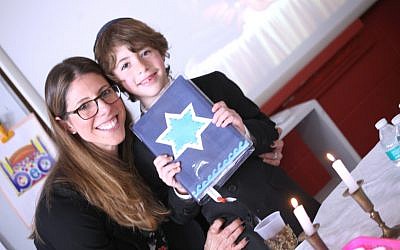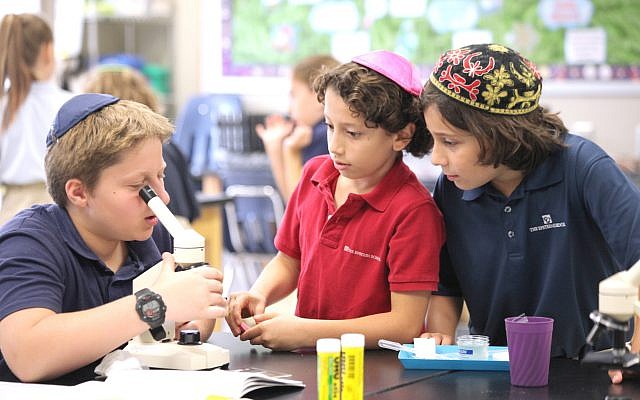A Call to Action: Invest in Jewish Education
We have the resources as a community to eliminate the cost barrier to Jewish day school for interested families.
“The moment of education is the moment in which you dedicate your mind to something and, as a result, your behavior shifts.” Avraham Infeld
We have the resources as a community to eliminate the cost barrier to Jewish day school for interested families. By allowing cost to be a barrier, we are actively limiting our day school population, and in turn, we are limiting our collective Jewish potential as a community. For these reasons, I make this appeal to our community’s most benevolent leaders.
As Atlanta’s Jewish leaders and institutions search for innovative ways to strengthen our community, we must start by asking ourselves what type of community we want and how can we best ensure its realization? The continuity we desire cannot exist without understanding that what binds us is a common knowledge about our people, our traditions, our culture, our stories, and our language. Creating a deeper well of knowledge and facilitating more shared experiences strengthens the individual’s identity and leads to a stronger and more sustainable community.
We have seen how innovative programs such as Birthright Israel, Honeymoon Israel, Jewish Women’s Renaissance Program and others have successfully reawakened people’s interest in and commitment to their “Jewishness.” One of the reasons these programs are so impactful is because most of the participants are (often unknowingly) yearning for more education about themselves, their families, the Jewish homeland, and their history; their Jewish identities may not have been sufficiently nurtured in their youth. The programs are successful because they provide shared, experiential education about our collective Jewish history, our unique Jewish memories, religious meanings (i.e., life cycle, holidays, values and behavior), our diverse relationships with G-d, our ancestry, and the Jewish State of Israel. What will happen to the next generation if our youth grow up with Jewish identities even more fractured than those of the previous generation?
Start Them Young
Having participated on Atlanta Frank Mission 6 this year, I returned home inspired and invigorated by what I can only describe as a life-changing education on the historical and present-day Arab-Israeli conflict, geography, religion, the importance of the Hebrew language, and the Jewish people. The program is what helped me define my Jewish identity more completely as it connected me to my ancestry. The combination of the relationships I built on the mission and the education I gained compelled me even further to increase my involvement and investment in my Jewish community. It also reaffirmed my decision to send my children to Jewish day school, so they can have the best Jewish education available to help strengthen their identities and give them essential resources to live meaningful, connected lives.

Young adult or adult-targeted programs such as Birthright and the Frank Mission are downstream interventions serving to fill in missing pieces or serve as “booster shots.” Primary and secondary Jewish education for our youth is our greatest upstream potential. To strengthen our community from within, we need to do everything we can to enlighten our youth and build their Jewish identities from a young age. Why would we ignore the Jewish educational needs of youth in the hopes we can draw them in later in life?
School as Focal Point
Jewish learning is the constant catalyst for Jewish living, and school is the focal point of life for families with school-aged children. These parents live by school-year calendars, namely school holidays and vacations, academic milestones and benchmarks. When these events correspond, rather than conflict with the Jewish calendar, Jewish learning about holidays, parshot, and life-cycle events occurs naturally. There is a tremendous amount of innovation happening within day schools to effectively integrate Judaic and general studies. Blending geography with lessons about Jews around the world connects youth to their global heritage. Schools are effectively building communities that embrace religious differences while celebrating our cultural similarities.
For many parents of day school students, the education they receive via their children is their own catalyst for greater involvement in the Jewish community. And for the increasing numbers of interfaith couples in our community, a welcoming, accessible and affordable Jewish education may serve as their most valuable resource in passing on the key pillars of a Jewish identity. Our Jewish community is missing out on the engagement of so many families who reject day school for their children because of the high financial cost. This barrier can and should be remedied by launching an innovative and intentional focus on Jewish education by our generous community of donors.
Affordable Jewish education
We must make sure we have well-funded, exceptional primary and secondary Jewish education that is equally accessible and affordable to all who want it. It requires top-notch educators, administrators, facilities, and other resources to: 1) improve day school affordability, 2) improve accessibility with bus transportation, 3) sustain and improve program quality, and 4) better-articulate and promote the value of day school education.
Day school parents and graduates make up a majority of our leadership positions and board members, yet we, as an Atlanta Jewish community, continue to look for ways to divert resources away from day schools to instead focus on programs that target less-engaged or unengaged families. Why aren’t we investing in a resource that continues to pay dividends as evidenced through the graduate and parent involvement? Only a small subset of our community is investing in day school education for their children – children who will grow up to sustain and lead our community. And of these families, 50 percent of them receive some financial aid. These families need our support and investment. And families who wouldn’t even consider day school because of cost need to be reassured that their children are worth the same community investment.
We need innovative thinking and innovative investing. We are an established, growing, thriving Jewish community in need of leadership that supports and strengthens us at our core. You are a critical part of that strategy/solution. Invest in the educational programs and products that have a proven return on investment and are successful in strengthening our community and building for a stronger future. This is innovation at its finest and our children and our community will receive these dividends for years to come.
Stephanie Rubel is a public health research consultant. She lives in Brookhaven with her husband, Josh, and their three children who attend The Epstein School in Sandy Springs.





comments